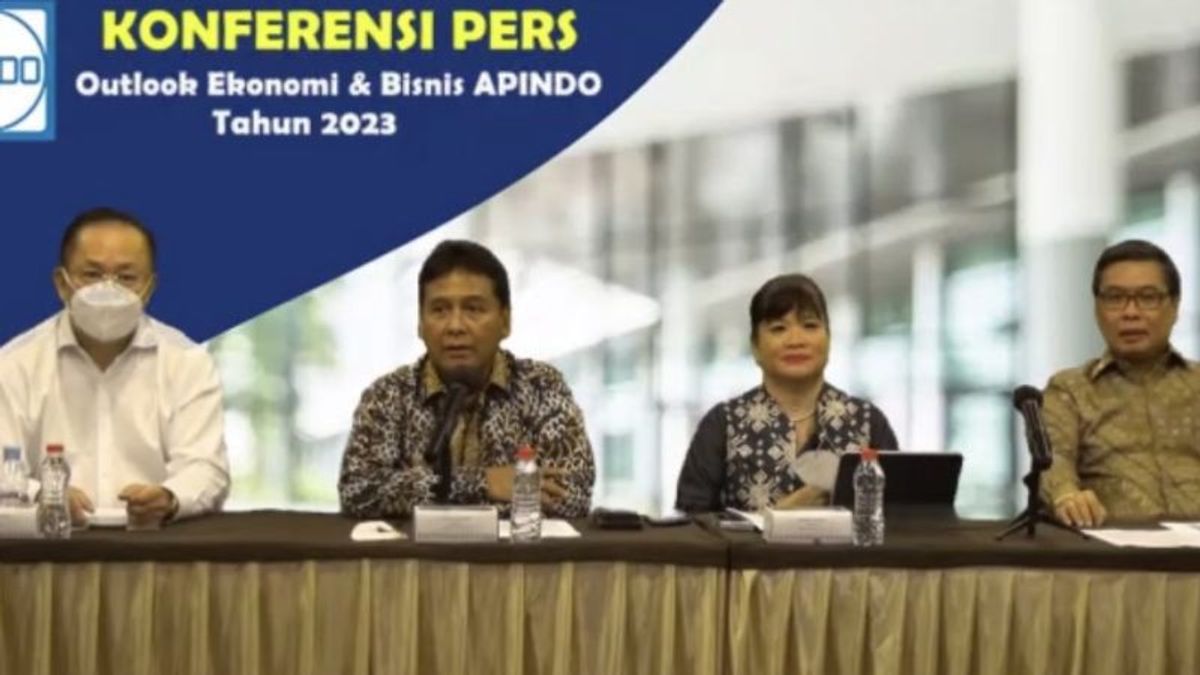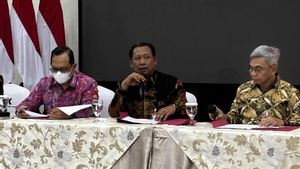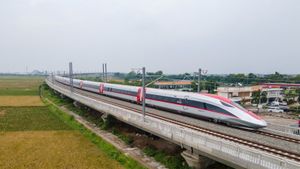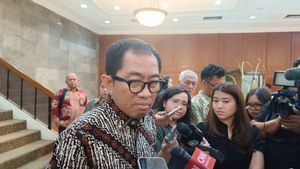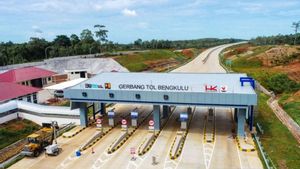JAKARTA - Chairman of the Indonesian Employers' Association (Apindo) Haryadi Sukamdani said Apindo projects that the Indonesian economy can grow in the range of 5 percent to 5.3 percent in 2023.
"For 2023, Apindo estimates that overall economic growth will be in the range of 5 percent to 5.3 percent year on year (YoY) with inflation between 3.6 percent to 5 percent, and the average Rupiah exchange rate against the dollar in the range of Rp. 15,200-Rp. 15,800 per US dollar," said Haryadi, quoted by Antara, Wednesday, December 21.
Haryadi explained that the projected growth range is based on considerations, namely that the economic recovery will run quite well in 2022, including as a result of a number of social protection programs and national economic recovery (PEN).
Then, there is the right synergy of fiscal and monetary policies to reduce the various impacts of global inflation and the sluggishness of the world economy.
"Unfortunately there is a lack of consistency in the implementation of the structural reform agenda which has the potential to cause inclusive economic growth," said Haryadi.
Meanwhile, he said that the influence of the global recession was very pronounced on the decline in the aggregate for export products from labor-intensive industries, followed by a massive layoff (PHK) by the end of 2022 which is projected to continue in 2023.
On the other hand, job creation continues to decrease due to capital-intensive investment and the use of technology.
Work seekers with low skills or skills who graduated from elementary and junior high schools are increasingly being eliminated in fighting for work from the formal business sector who have certainty of income.
As a result, social assistance for marginalized communities is increasingly burdening the government's budget that hinders development.
"The worsening of labor absorption in the formal sector compared to the increasing number of people has an impact on decreasing people's incomes so that they cannot meet their nutritional needs," said Haryadi.
According to him, to achieve the 2023 economic growth target, the Government is considered to need to be consistent in carrying out a number of structural economic reform agendas as reflected in the substance of the Job Creation Law.
"Various problems of policy inconsistency absolutely need to be followed up quickly. populist policies that destroy medium-long-term structural reforms must be corrected," said Haryadi.
In addition, institutional support must be carried out effectively and efficiently to maintain recovery momentum amid the threat of a global recession.
The English, Chinese, Japanese, Arabic, and French versions are automatically generated by the AI. So there may still be inaccuracies in translating, please always see Indonesian as our main language. (system supported by DigitalSiber.id)
